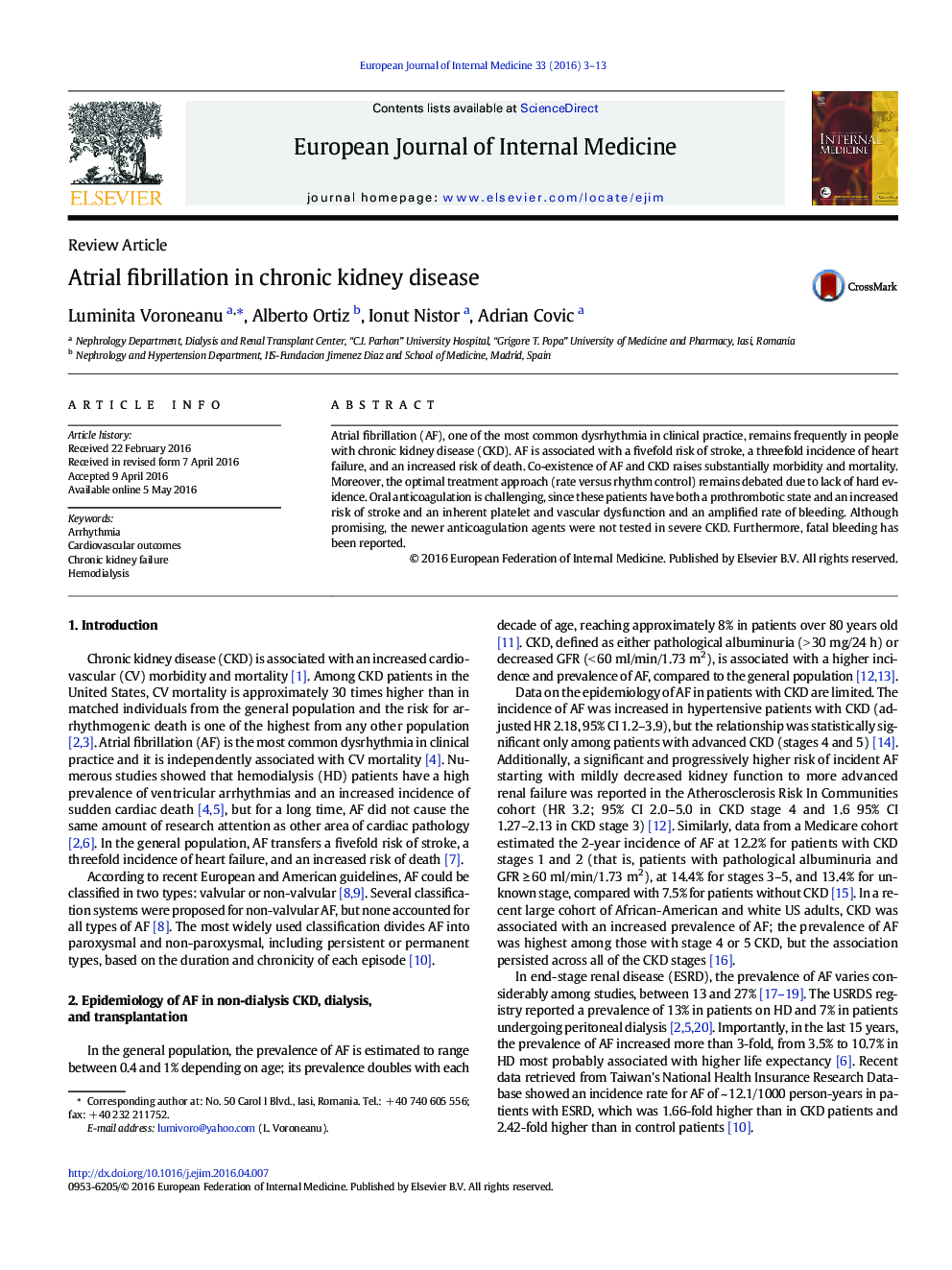| Article ID | Journal | Published Year | Pages | File Type |
|---|---|---|---|---|
| 3465825 | European Journal of Internal Medicine | 2016 | 11 Pages |
•Atrial fibrillation remains frequently in people with chronic kidney disease.•AF is associated with an increased risk of morbidity and mortality.•The optimal treatment approach remains debated due to lack of hard evidence.•Oral anticoagulation is challenging.•The new anticoagulant agents were not tested in severe CKD.
Atrial fibrillation (AF), one of the most common dysrhythmia in clinical practice, remains frequently in people with chronic kidney disease (CKD). AF is associated with a fivefold risk of stroke, a threefold incidence of heart failure, and an increased risk of death. Co-existence of AF and CKD raises substantially morbidity and mortality. Moreover, the optimal treatment approach (rate versus rhythm control) remains debated due to lack of hard evidence. Oral anticoagulation is challenging, since these patients have both a prothrombotic state and an increased risk of stroke and an inherent platelet and vascular dysfunction and an amplified rate of bleeding. Although promising, the newer anticoagulation agents were not tested in severe CKD. Furthermore, fatal bleeding has been reported.
